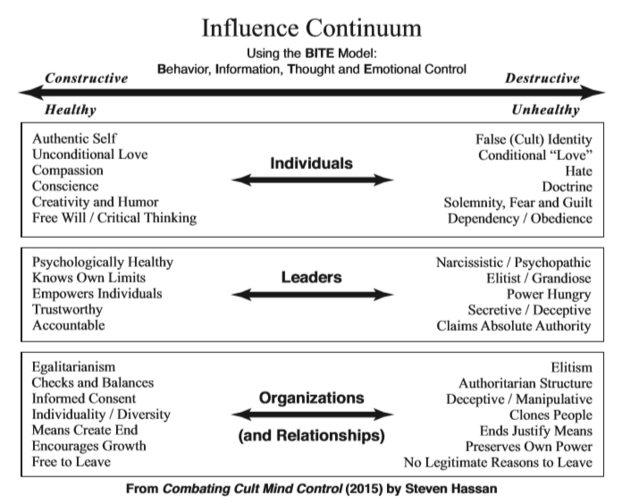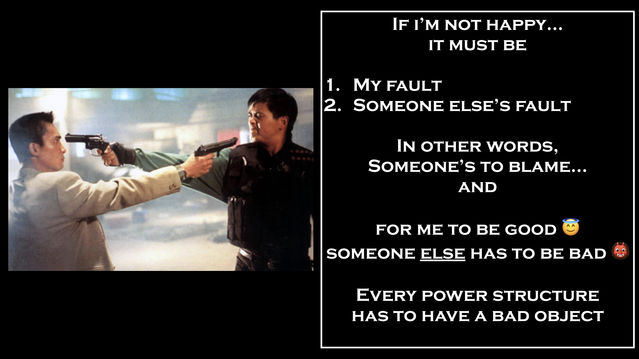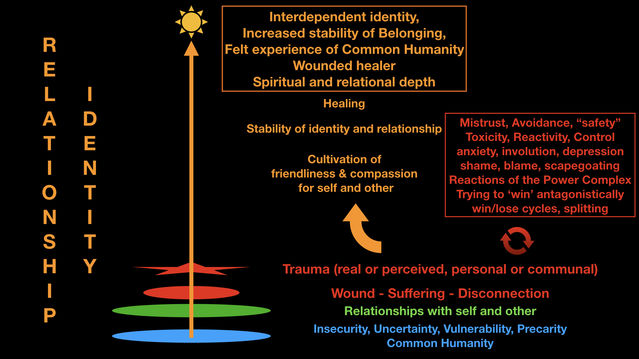President Donald Trump
The Cult of Trump
A new book describes the cult of partisanship
Posted December 23, 2019 Reviewed by Lybi Ma
Steven Hassan studies mind control and cults, and is the founder of Freedom of Mind. He has helped thousands of individuals and families become free of undue influence. His gripping first-hand account of becoming deeply involved in the Unification Church (the "Moonies") in his early 20s was recounted in the best-selling book Combating Cult Mind Control.
His latest book focuses on something different—The Cult of Trump: A Leading Cult Expert Explains How the President Uses Mind Control. It is instructive for all Americans, no matter where they stand on the political spectrum, as it unequivocally shows how President Trump, Republican leaders, and their media and partisan supporters have created a self-reinforcing echo chamber of propaganda and mind control that is a destructive influence to democracy.

Hassan finds echoes—unknowing or conscious—of techniques used by known cults and dictators to enforce the president’s single-minded, narrative that advances power. Given the temperament and history of Donald J. Trump, it's hardly surprising that he is formally accused of obstructing justice and abusing power. That an entire party and perhaps almost half the country nevertheless supports him will be discussed for years.
It is evidence that we have taken down the guardrails that protect us from authoritarianism, and have had no clear remedy for the abuses of speech now possible with cable news and social media. The path has been cleared for a cult of personality, something our founders clearly warned against.
A friend who learned I was reading this book responded, “Well, aren’t we all part of some kind of cult?” Hassan makes a distinction between constructive and destructive influence (see below). We are all inseparable from our relationships, and we all influence each other. And culture influences in subtle and not-so-subtle ways.
As part of the American culture, we are all carried by certain cultural assumptions and ways of life that could be considered destructive influences: consumerism, militarism, imperialism, racism, religious tribalism, sexism, and a self-centered brand of individualism (all of which inflame greed, jealousy, envy, and antagonism) to name a few. If we oppose these, we might get blowback from those committed to those values. The same might be said of other destructively controlling groups. It’s on us as individuals, families, communities, cities, states, and nations to ensure that we limit destructive influences and enhance positive and constructive ones.

Every power structure needs a “bad object.” President Trump magnifies his power by declaring that everyone who disagrees with him is “bad.” Democrats must be wary of mirroring him, and decrying the president or his supporters as their “bad object.” This is the underlying "Hatfield-McCoy" bitter feud of our Republic. It's a John Woo, no-win standoff.
We could opt for win-win-win solutions.

As Americans, perhaps we should more strongly affirm that if we should choose a ‘bad object’ at all, it should be inequity and injustice—and then debate exactly what that means to each of us. After all, the fight against these is embedded in our founding documents. This would take us away from the personal animosity and partisanship that fuels our cult-like predicament.
The downside of a country that enshrined the “pursuit of happiness” in the Declaration of Independence? We think that we are entitled to happiness. If we’re not happy, someone must be at fault. Whatever shame we feel at blaming ourselves is instead projected outwards. “I’m not happy, and it’s someone’s fault. Someone's at fault for our distress, and we must take revenge.” Despite our status in power and wealth as a nation, many of us are unhappy: Life expectancy is shortening, suicides are on the rise, and young people are convinced that they will not live as well as their parents.
President Trump has capitalized on this unhappiness, as well as the insecurity of whites about changes in demographics and status, to point the finger of blame: at everyone but the system of corruption (of greed and ego) with which he has manifestly been complicit, and which we, unfortunately, have not curbed. Media, Democrats, government, non-Christians, even military generals who disagree with him—all are at fault and thus the cause of his (and presumptuously, our, unhappiness). He has not called out excessive greed, hatred, or other antisocial elements of our culture and psyche (as other presidents have in varying degrees); in fact, he has demonstrably embodied those traits.
At best, I could consider President Trump as a kind of teacher. He has brought to the surface our trauma and wounds of relatedness, and thoroughly activated the conditioning of our cyclic existence (see below). All of us are affected by the basic trauma of being in some way disconnected and uncared for. We parallel process our trauma. We can sometimes slip into shame, blame, scapegoating and what I call the "power complex". Alongside this, we work at relatedness. (In the diagram below, the parallel processing is represented by the red cycle of trauma and conditioning next to the orange pathway of interdependence and relationship.)
A cult is a magnified power complex. We can heal ourselves only in deepening relationships and interdependent identity, though.

Cults, including personality cults, thrive because they feed an illusion of certainty, power, and control—over uncertainty, insecurity, vulnerability, and change, however much they are the way of the world. We cannot find our way to truth, wisdom, compassion, and enlightenment by denying our vulnerability, the vulnerability of others, or our collective vulnerability as frail living beings dependent on a fragile Earth in the cold, dark emptiness of the cosmos.
To save our democracy (and our planet), we have to contain partisanship and the struggle for power, which invariably leads to cultism. Leaders are important, but no one should be beyond reproach and above the law. If a party is prone to using propaganda, rhetoric, and insults instead of reason, we must question whether it has, in fact, turned into a political cult.
(c) 2019 Ravi Chandra, M.D., D.F.A.P.A.
Also see these lectures on Narcissism in the American Psyche from October, 2019
SF Love Dojo Narcissism and Executive Power in the American Psyche, part 1
SF Love Dojo: Narcissism and Relatedness in the American Psyche, part 2
References
Also see these lectures on Narcissism in the American Psyche




